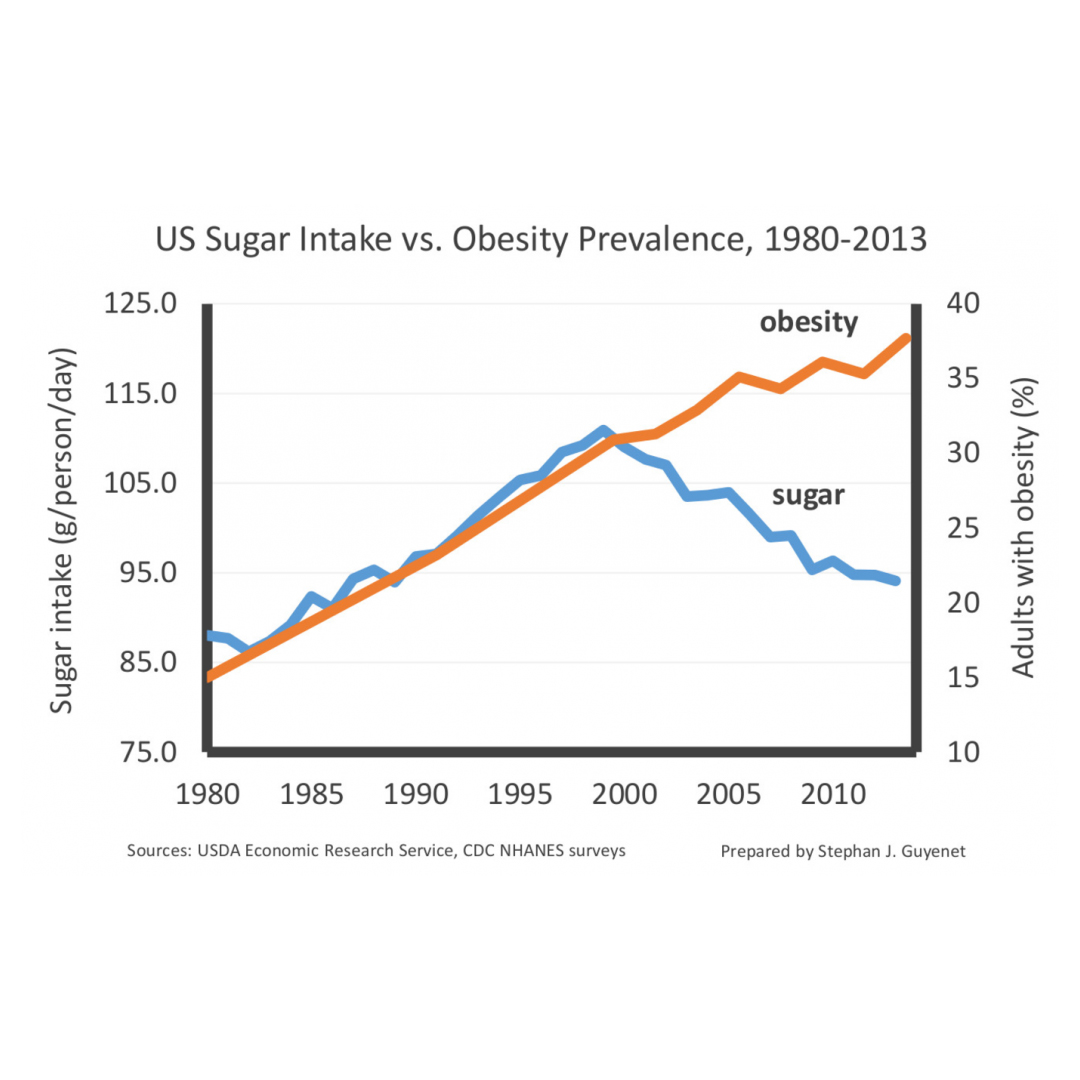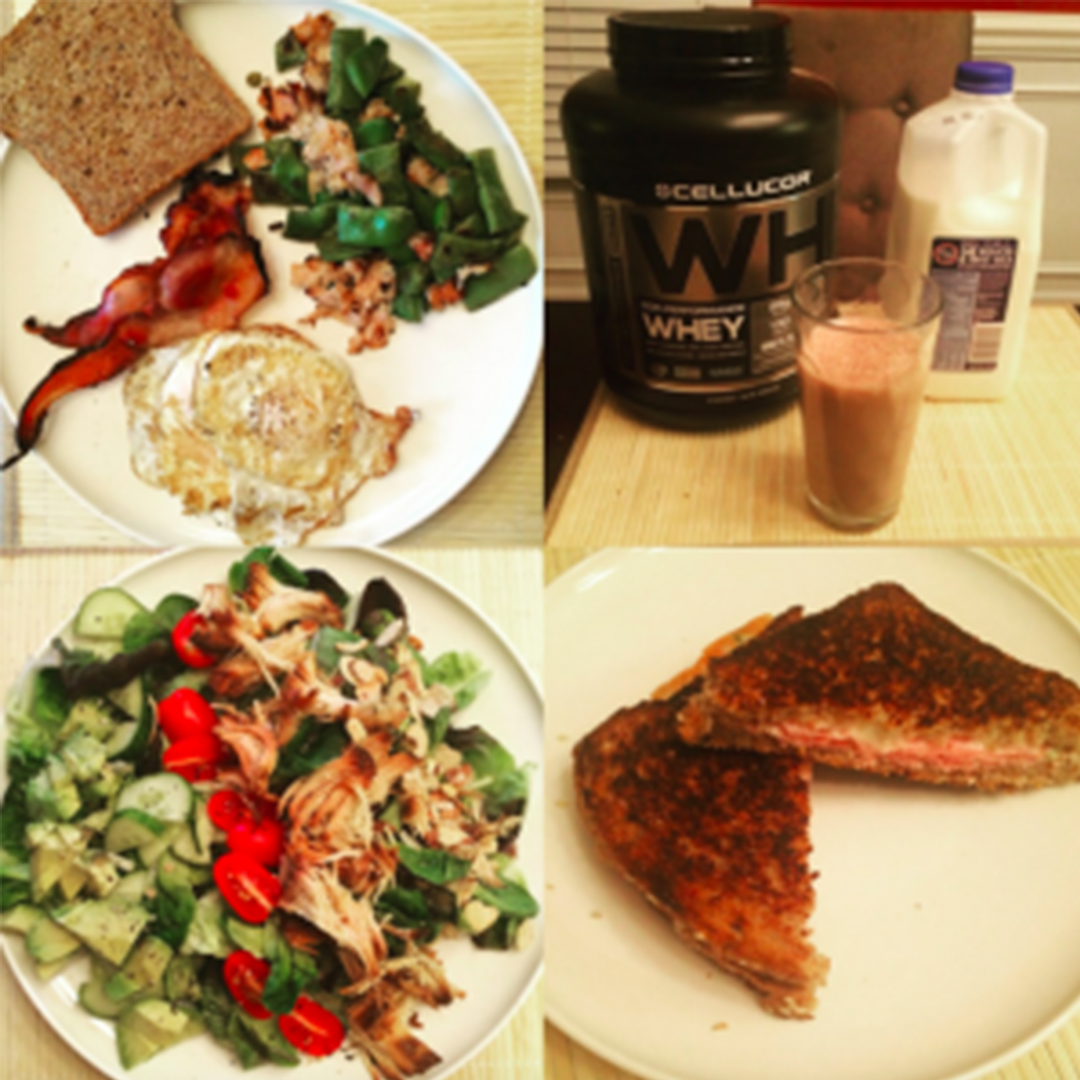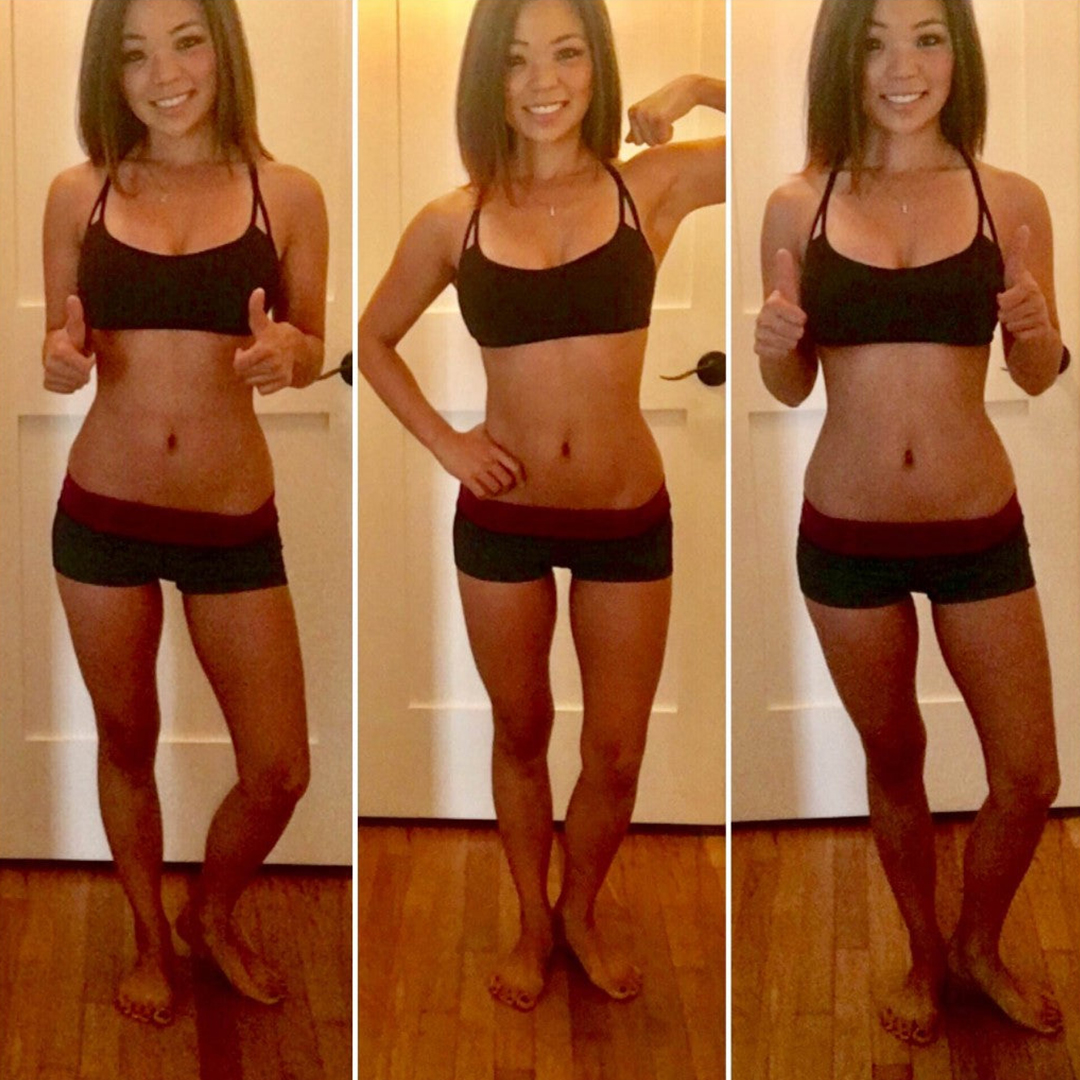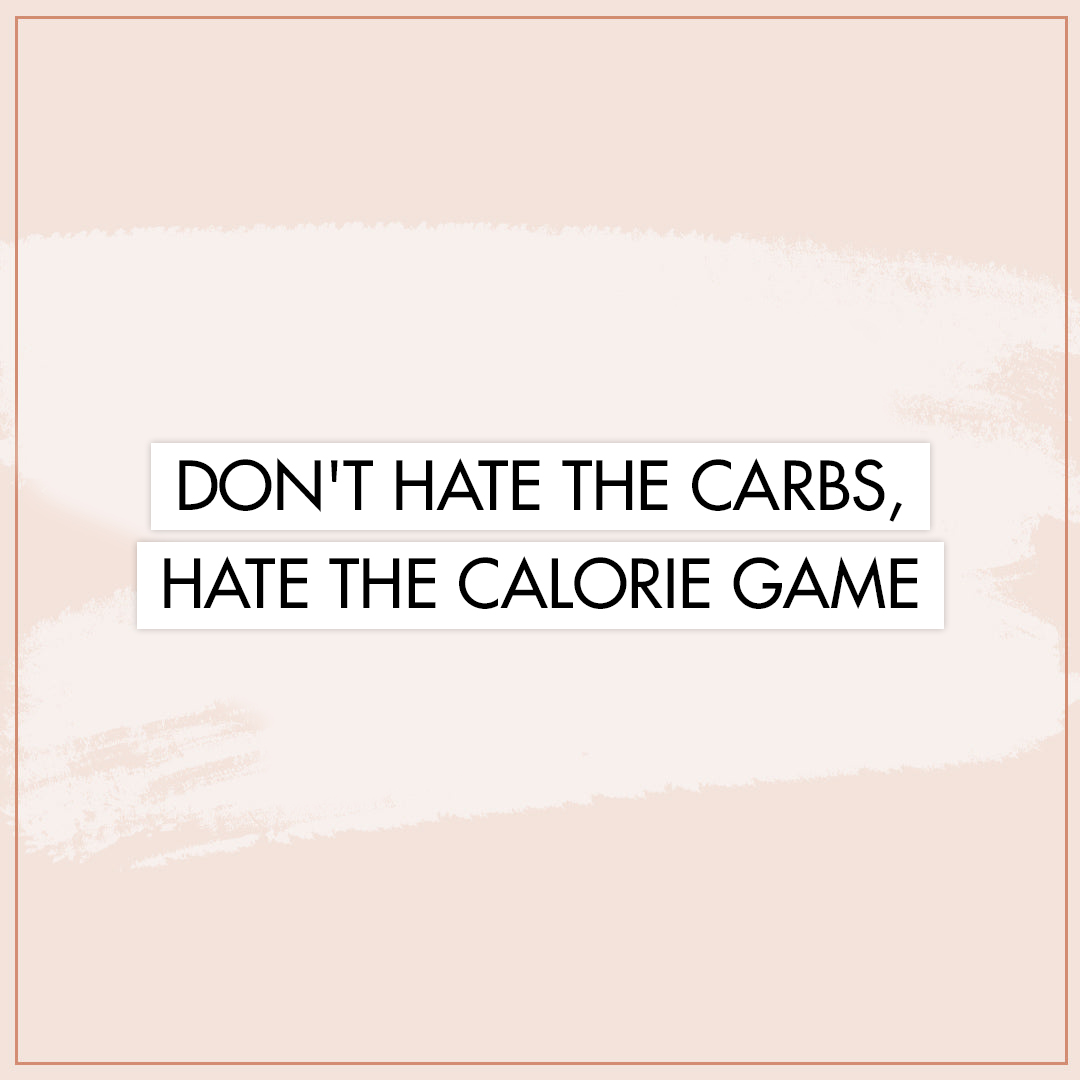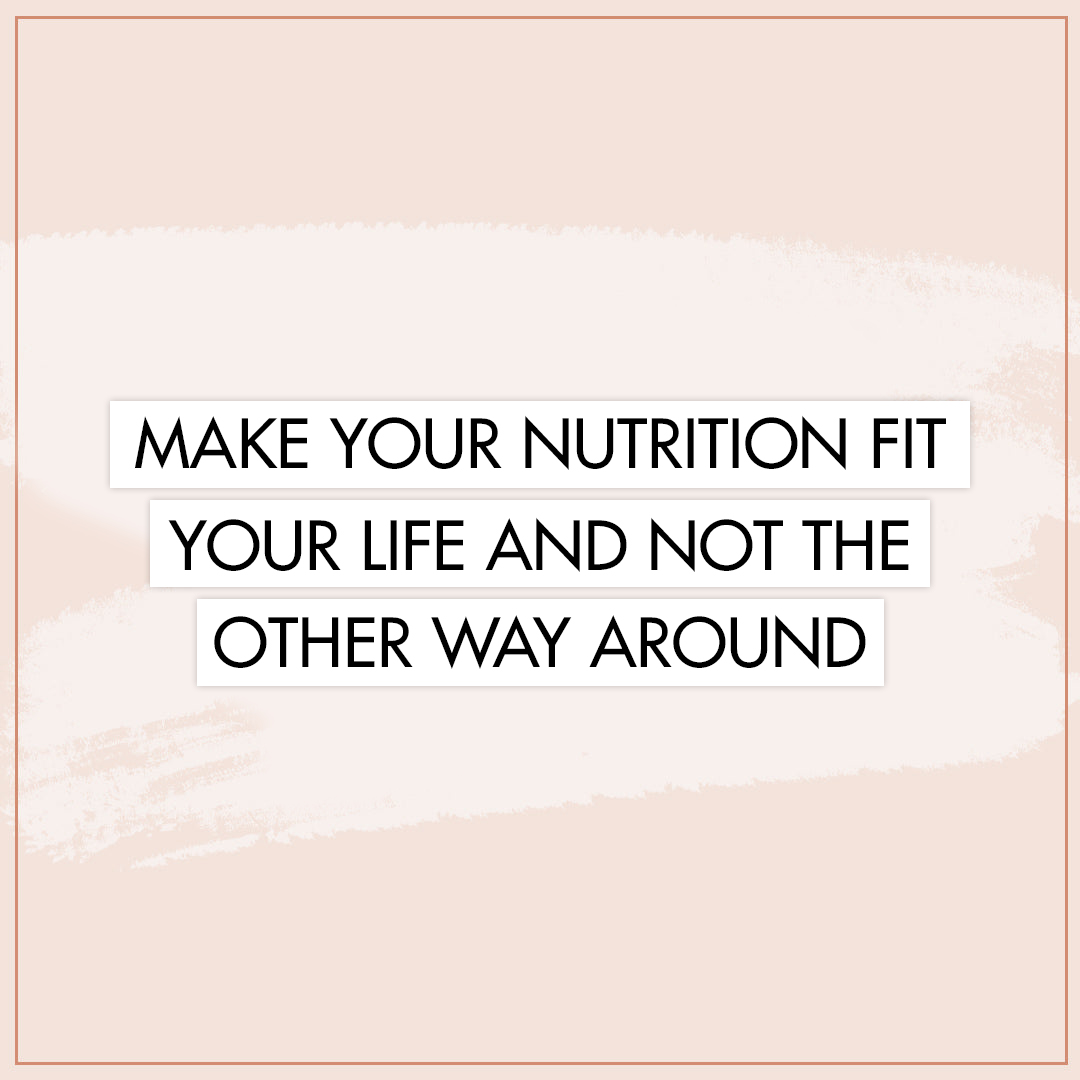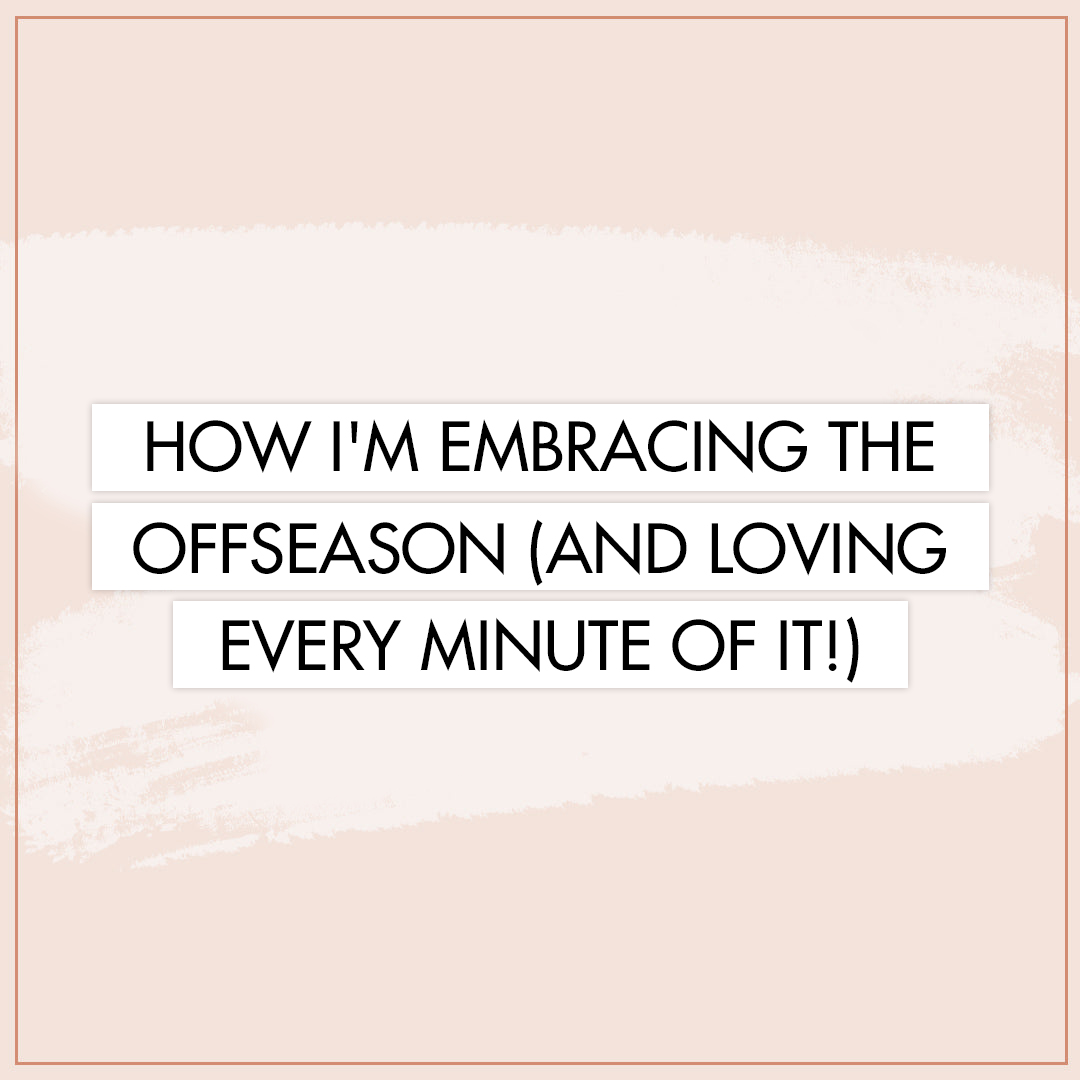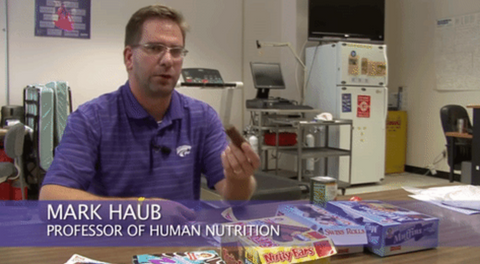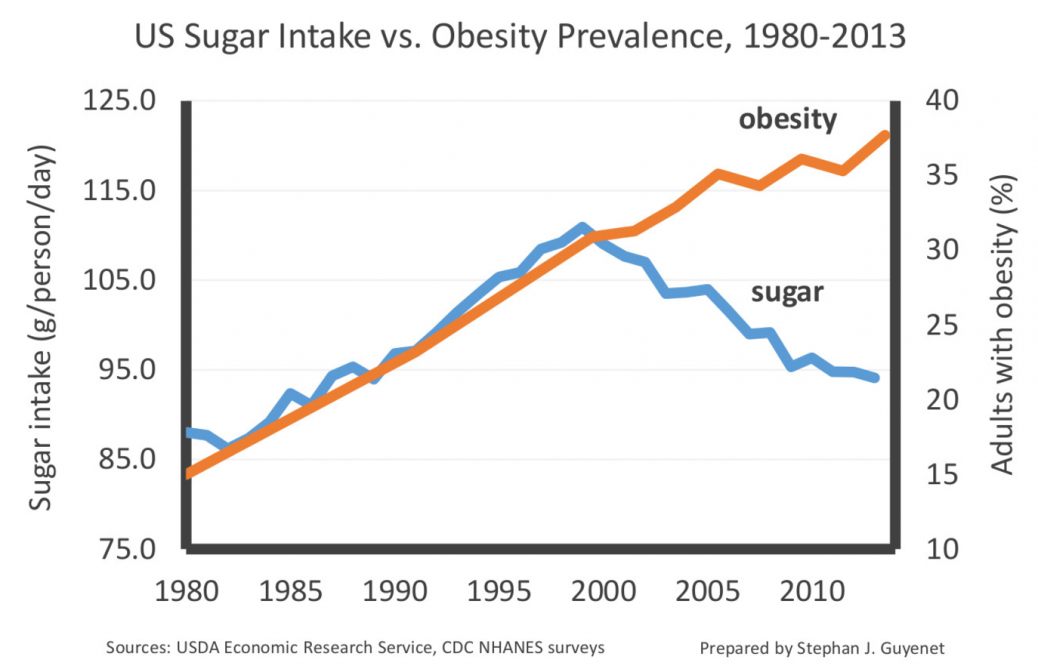BRET: When you had the question, “Why is there backlash?” That’s one of the main reasons. I mean I’m guilty of this. You don’t want to take a picture of your clean meals. It’s not fun so when you splurge you want to take a picture of it and put it on your Instagram and hash tagging #IIFYM.
Think if you’re a hardcore bodybuilder and you’ve always done it this way. First of all, we have to get in the minds of how much BS do we see every day, on Facebook or things that are sponsored. Your initial response is, “this is so stupid.” We are trained to kind of roll our eyes at everything that comes by. Then you start hearing about IIFYM and it wasn’t the bodybuilders doing it, it was some skinny kid on the message board. I can see why they’d initially be skeptical.
STEVE: They want to show how much junk food they can actually eat on it.
COURTNEY: That’s just abusing it.
SOHEE: That’s not what it’s supposed to be.
COURTNEY: When people think IIFYM, they think it’s people that only eat donuts and Poptarts. That’s not essentially the case. You can still track and still eat your “clean bro food” or whatever.
BRET:Look at Ronnie Coleman DVD’s from back in the day. He was flexible dieting! He didn’t call it that. He’d have steak and fries at Outback 6 weeks out.
Layne:Exactly. What was funny was that everyone freaked out about the Ketchup.
STEVE:I also think it’s interesting because, really, it comes down to — and this is more psychological — that “bad food” you love posting, it’s almost that excitement like you get from the same part of your brain. It becomes almost like this naughty thing that you feel like you’re doing something bad.
I told you when I was prepping years ago strict that I was working at Texas Roadhouse pounding ice cream in the back because it kind of gave me a rush. I got off on this, “I shouldn’t be doing this”. It’s almost like I was trying to cover up a porn addiction.
But what I’m getting at is that food can become so taboo like you shouldn’t eat that and we tell ourselves that and all of a sudden we get weird relationships with it where it’s totally unhealthy. I think that’s where the normal person just can’t wrap their head around it. Society just says it’s so taboo.
LAYNE: Let’s just say you’ve been doing it [clean eating] for a long time, you’ve had to suffer, you’ve only eaten certain foods. And you’ve seen someone who can get in shape doing this kind of thing –you’re not going to feel happy for them. You’re going to feel like, “I did this for a reason, this has to be the way it works.” So if you’ve only eaten broccoli and asparagus and brown rice and chicken to get in shape and you see people doing different.
The science is there to show that there is no difference. If you want to eat clean, that’s fine, but flexible dieting is just as good. And then they’ll say, “Well show me and IFBB pro who has done it and won a show?” And you know what it is – it just doesn’t look cool. It’s like wearing a hoodie when you’re doing cardio. There’s no extra fat-burning effect to that. It just looks kinda cool. So some of them do it, but they just don’t talk about it.
BRET: But they have a cheat meal and it’s like if you were to split it out across the week, first of all. Second of all, some of them did it, like Ronnie Coleman. Third of all, a lot of them are really dumb. They don’t think to try it.
STEVE: If you broke down clean vs. unclean foods in a flexible dieter, what percent of your diet would be deemed unclean? Maybe 30?
LAYNE: 20%
STEVE:You have that 80/20 rule, and again looking at someone that is not a flexible dieter, they’re eating more junk food than you! So really you’re the clean eater! Whoa!
LAYNE:So now we go back and we have tens of thousands of examples of natural guys who do flexible dieting and they get shredded. Are you gonna tell me there’s an IFBB pro that gets more shredded than Alberto Nunez? Good luck! So then they say, “There’s no IFBB pro that’s doing that.”
https://www.instagram.com/p/BRwCmIUhmw0/
Okay so you’re telling me that steroids make it harder to get leaner? Okay… so you can get shredded. Can they not building as much muscle? So when you break down the argument, there really is no argument. It’s just an emotional thing where it’s, “I want to justify the suffering that I’ve had to go through,” and it looks cool to suffer.
When I started flexible dieting, I didn’t do it because I wanted to eat Poptarts and stuff. I wanted to win! I am an athlete, and I want to win, and I’m going to do whatever it takes to win. If I thought eating clean was best to win, I would do that.
The reason I started this was because I found myself blowing up in the off season and getting so far out of contest shape that I would lose a lot of lean body mass trying to get back down to contest shape as a natural. Every single case study we have of natural bodybuilders shows they lose at least 5lbs of lean body mass dieting down for a contest. Every single case study. Contest prep on a natural bodybuilder crushes your lean body mass. Regardless if you do it right, you’re going to lose lean body mass. And the harder you have to diet, the more likely you are to lose lean body mass. So I thought that if I could stay closer to contest weight and I’m not getting so far outside of that, then maybe I can maintain more of my size going in. And what I found was that introducing some more flexibility rather than doing a cheat meal was good. I’d try to figure out the macros on a piece of pizza.
SOHEE: You kind of thought of this on your own.
LAYNE: Yeah. And then I found the science afterwards.
COURTNEY: People ask me when my last cheat meal was and I haven’t had a cheat meal in a long time.
LAYNE: I haven’t had a cheat meal in eight years because I’m always eating mindfully. Even if I’m not weighing it out to the gram, I’m looking at it like, “it probably has this, this, and this”.
BRET: I’m 40 years old. I remember reading all the bodybuilding magazines when I was 16 years old and thinking, “Why do they always eat oats and brown rice and whole wheat stuff?” And, “What if you wanted a glass of orange juice? Couldn’t you substitute that?” And, “What if you wanted a yogurt? Where does yogurt fit in?” And, “What if you like milk? Couldn’t you have a little less meat or a little less rice and have some milk?”
I remember thinking about flexible dieting when I was 16 that none of it made sense but none of the bodybuilders did it that way. I feel bad because I said that most of them were stupid and it’s not that. It’s that they don’t experiment enough. If they did, they might say, “I’m gonna experiment during the off season,” but substitute things and they wouldn’t have a problem if they substitute turkey for fish.
LAYNE: Joe talked about this on our podcast. Joe had a contest prep guy that had him eating green beans and he said, “I don’t like green beans, can I eat peas?” and the guys said no but couldn’t give an answer. I think the science guys in the industry are drawn towards flexible dieting. You’d be hard pressed to find a guy with a background in science who advocates for clean eating over flexible dieting. I don’t know of any to be honest. Maybe there’s a couple. A scientific person, the actual nature is to be inquisitive and not just accept what somebody tells you. I’m very skeptical just by nature. That was how Joe came to it, I came to it. And then on the message boards people would say, “Is an apple okay?” And I’d say, “Yeah it’s fine, if it fits your macros.” And I don’t want to say that I came up with it. I think it was Eric Koenreich that came up with “IIFYM”.
STEVE: One thing I’ve often thought about is, does it have to be a 24 hour thing? Can you spread it out over the week? Maybe one day do a day that is all veggies? And another day do a super super high day? There’s some people that I know that are like, “I don’t want only one cookie, I want five cookies.” It’s their personality type. There are people that can have a bite of chocolate and put it away. When you’re carb cycling can you do something like that?
LAYNE: Like a weekly balance?
BRET: I think so. The leanest I ever got was 224lbs and DEXA said I was 16% body fat. I looked great for me. As soon as I got leaner, I was going to make a product called Putting the Flex in Flexible Dieting. We are not flexible enough.
First of all, one day a week we could do an If It Fits Your Calories day, not If It Fits Your Macros day. You could set minimums for proteins and fats. As I got leaner, one day a week, I felt like it helped with adherence. I can eat a lot of calories, about 6,000, but 3,800 was my lowest. Could I get to 6% body fat like that? No. Even with protein if you get 1.6 grams one day and 2.2 the next and then carbs and fats are interchangeable. If you’re the type that that affects your training maybe not, but I found that it didn’t affect my training.
LAYNE: So we don’t really have any data about carb cycling. I think you’re looking at a hierarchy. Yes, it’s probably weekly calories that are the most important and then below that is weekly macros, and then below that is your daily calories, and then below that is your daily macros. At the absolute lowest rung is meal timing and these sorts of things.
What I tell people is that I prefer that they get closer to their macros because there is something to be said for consistency in terms of what you’re feeding your body. If you are used to a certain amount of carbohydrate, if one day you flip it, your body is used to metabolizing carbohydrates and not used to metabolizing that much fat. If you flip it and you’re doing high fat, low carb, there is a lag time for your body to get adjusted to that.
I sometimes have clients who tell me that they’re going on a two day vacation and eating this and that and so I’ll cut 300 calories off of their daily intake to give them more flexibility when they go out there. If you know you’re going to be traveling, the meals that you can control, go low carb and low fat. So the meals that you have less control over, you have more flexibility to fit it in. I really try to have lower fat, lower carb breakfast, if I’m traveling. If you have a pretty high fat, high carb breakfast, now you’ve roped yourself into what you have available to you later in the day.
STEVE: And speaking to that, your self control is a muscle. The more you use it, the weaker you get. You start out in the beginning of the day and we’re going to be on our diet, and we’re going to hit our macros to a T, and what happens at 10 o’clock when you’ve had to make a million other choices in the day. At the end of the day, you don’t have more strength to give that willpower.
BRET: It’s called ego depletion. There was a meta-analysis that came out.
SOHEE: It’s my first year of my masters thesis right now and I’m studying the psychology of eating behavior. The first 10 weeks of my semester I was talking with my advisor and trying to do a study on ego-depletion which is the idea that self control is limited and he was iffy about it. Not long ago, the meta-analysis came out [Correction: It was a pre-registered replication report, which you can read about here where they had 47 different labs around the world replicate the same exact self control protocol and they found that the effect size was not as big as they initially thought so now they are trying to say that maybe ego-depletion is not an actual phenomenon.
There’s actually a study by Carol Dweck at Stanford who showed that whether or not you are limited in self control depends on your belief that you are limited in self control. If you are taught, “hey, you have self control and it’s unlimited,” and then you guys would perform better on some cognitive task and then I’d say to another group ,“self control is limited. The more you use it, the less you have,” and then that group would go in that direction. So there is some conflicting evidence and I don’t really know what to think right now, but there’s a lot of evidence for it and there’s some against it.
LAYNE: Do you remember what Kori Propst said on our show?
SOHEE: Self control is fatiguing!
BRET: Is flexible dieting bad for decision fatigue?
SOHEE: There’s a balance!
LAYNE: Some people will trade one disorder for another. “I have 2g of carbs left and 1g of fat left, what can I fit in?” and you don’t need to. You’re fine [fret about it]. If you’re within 5-10g of your macros, you’re fine.
SOHEE: I read a blog post 14 months ago called “No One Gives a Shit About Your Macros”. If that’s what you’re talking about all the time, it’s a form of orthorexia. There’s a big misconception that being lean or adhering to a diet is about self control. That’s not true. There’s so much research that shows that it’s people who rely on their habits more than self control are healthier year round. They have lower BMI and healthier lifestyles overall. It’s not that you need more self control; you actually need to build better habits. They are two sides of the same coin. With habits, you don’t rely on self control. There’s no cognitive effort involved.
LAYNE: People will ask me “Doesn’t it bother you to track like that?” No.
SOHEE: Layne, when you were visiting last fall – I like to pay attention to peoples eating behaviors and I noticed this with Spencer Nadolsky — the way that you eat, you go for the low calorie, you go for the Splenda, egg whites over whole eggs, spray butter over natural butter. These things add up throughout the day. I’m looking at it knowing that it’s your default. But these are your habits; it takes no extra effort for you. For someone else to replicate the same behaviors it might be a lot more difficult because they are not there yet, but for you that’s your automatic and that’s why you can stay lean year round. It makes a lot of sense.
LAYNE: It doesn’t cause me extra stress. It’s just something that I’m so used to doing that it’s become a habit. If I go up a level and I’m prepping for a contest because to get that lean, it does take another level of commitment and precision. That will be fatiguing for me. I will get to a certain point where I would just love to take a bite of a protein bar and not track it. That sort of thing.
SOHEE: Detail matters for you guys and that’s really extreme, but that’s not what you do year round. Short periods of time, it’s fine.
STEVE: This is one of the hardest things for competitors is going from stressed because you have kicked it up a notch to back to mindful eating. That reverse diet is so important.
LAYNE: Most people diet for something. The transition period is very crucial. I see people put a few pounds on and the negative place it puts them in. They go into fuck-it mode. And then all of a sudden, they’re back on a diet again.
I binged after every show except for my last series of shows. I dieted for 35 weeks for those shows. I didn’t count macros when I was done because I didn’t want to. I just said, “You know what? I’m going to eat until I feel physically full, and I am not going to eat past that”. Physically full and mentally full are two different things.
SOHEE: Binge eaters are familiar with that.
STEVE: It’s a weird feeling to feel so full but still want more food.
LAYNE: That was my goal going into it. I’m going to have a few bites backstage. It was a guest posing, had a few things backstage, went to a restaurant and did deep dish Chicago style pizza from Giordano’s. I had two slices of that, a Corona, and I felt physically full. I still felt the compulsion to eat but I felt physically full so I said, okay, I’m done. Got back to the hotel, and some beef jerky and then I went to bed. I gained a pound. But I felt pretty good and I hit my goal of practicing cognitive restraint. The rest of that reverse went so well because I was in a good mental place.
STEVE: Because you were realistic.
LAYNE: You have to have some form of cognitive restraint. What we usually see is a prayer to the heavens and then they act shocked when they gained 5lbs. Of course it happened! Your metabolism is the lowest it’s ever going to be and you ate whatever you wanted. If there is a mental checklist in your head and you are okay with gaining body fat, then go ahead. But you have to have that inner conversation with yourself. If you want to stay shredded, it’s not going to happen eating whatever you want.
SOHEE: It’s so gratifying seeing more and more competitors moving in that direction. When I first competed, I was bingeing on almond butter before I even went out for finals, and within two weeks, I had gained back about 15lbs that I had lost. I realized over time that it doesn’t have to be that way.
When Paul promoted his first OCB show in Tampa, that was my comeback show where I did a 20 week prep and I didn’t want to tell anyone about it because I didn’t want to pressure myself. That was the first time that I took my time getting the body fat off. I also had a very clear understanding that once I competed, that was not the end goal. That was just a pit stop and I had so much more ahead of me. My first thought was just do the show and worry about the aftermath after the show. Now I had a plan in place, I want to get this weight off and I want to keep it off.
Now it’s been over two years post-show and I stay within 5lbs of stage weight. I stay lean year round. It’s not that hard. I’ve made this my norm.
STEVE: Did you have an immediate goal when you stepped off stage? I have an immediate goal that’s not look-related. I want to do a sprint triathlon a couple of months after my show. I need goals. I don’t want to always be about looks. That gets old. I think it’s important for the competitors out there to have something that is not physically related in terms of how you look. Maybe you have a goal to deadlift 500lbs.
SOHEE: Even if it’s not fitness related anymore, your priorities are allowed to shift. You don’t always need to make lifting and bikini competitions your first priority.
STEVE: The more focused you are on it, the more hypersensitive you are about it.
SOHEE: And sometimes you can’t enjoy it anymore.
COURTNEY: Yeah, because it becomes exhausting.
STEVE: They should put a pamphlet outside every auditorium. “Here’s your trophy, and here’s a pamphlet on reverse dieting.”
LAYNE: I have a small group of women that we are teaching flexible dieting to, and they’re using Avatar Nutrition. We have a private Facebook group for them. We want to see if there are any mental health improvements. They are having a difficult time jumping into macros. They keep saying, “I want a meal plan.” Some people do need those training wheels to start. It’s a skill. It’s budgeting. If you want to get wealthy without budgeting, you can, but you’re going to need to make a lot more money. If you budget, you can get there faster. If I teach you the skill of tracking, it’s going to take a few weeks and you’re going to mess up, but once you’ve gotten that skill down.
Sohee said something brilliant a few years ago that I quote to this day, “If you can’t see yourself doing this diet in 3 months, 6 months, or 12 months, then you need to rethink your plan because it’s going to fail.” And it fits with exactly what the data says.
BRET: I can tell you as a trainer who used to give meal plans — it [the meal plan] was so strict, and they’d get shredded. And they’d quit training with me and then they’d blow up. I gave them the worst system. I did not teach them, and I feel bad about that.
LAYNE: The most I ever learned about my nutrition was tracking my intake. I’ve done a PhD in nutritional science, and the most I’ve ever learned was having to go to the store. I had a complete book of food counts.
STEVE: My first competition I had that too. I had a list in the back of my training journal of all the foods and their calorie counts.
LAYNE: I had to do all the math. I learned so much. I didn’t know what a high protein food was. I didn’t know what a low carb, high fat food was. I’m a data-driven guy. If there is a system out there that works better, I’m all for it. But right now, I feel like this is the best system we have. Hopefully, we can give people better resources so we can give them those training wheels to get them to a better spot.
With Avatar one of the things that has helped was the Facebook Group we have with several thousand members. The support between the people is great. We have the flexible dieting queen, Kate Robertson, The Macro Experiment. She is the best at macro-friendly recipes. There are so many options out there now.
https://www.instagram.com/p/BRrieN8BAFc/
BRET: A lot of the criticisms against flexible dieting are if people like to eat “clean”, whatever that is. If you compete, and some foods tend to make you bloat, you can eat them in small amounts at certain times of the year and not during prep. The criticisms just don’t hold up.
STEVE: I don’t really mind. I had Chick-fil-A, I had poke, and I had some popcorn. It’s not my normal foods, it’s much better than me taking a bite of something on a “clean eating” program and then cheat. That is the point. Invest some time into learning about macros, and then take two weeks, don’t even adjust your diet, just start tracking. Just become aware.
SOHEE: There was a survey in the early 2000’s where they surveyed a bunch of Americans and it came out to something like 40-80% of Americans didn’t understand what a calorie was. They don’t understand their own energy needs. That is a shockingly high proportion of people who have no clue. They have no idea how to interpret it or put it into any kind of context. If you asked someone how many calories they need to maintain their bodyweight, they have no clue. Even the most basic instruction of, “Here’s around what you might need for your day”.
LAYNE: Why don’t we teach people budgeting, taxes, nutrition and things like this in school? This is information they actually need. There was a survey done in 2007. “Is a calorie a calorie” and 70% of Americans believe what you ate was more important than the amount of calories you consumed. We had to argue for and against. They made a lot of emphasis about the thermic effect of food. Protein has a higher thermic effect. You still have to account for those calories. If you have a food that tends to be better for body composition, it’s not because it’s magic, it’s because it has higher protein or higher fiber. You just don’t see differences in studies. If you equalize for calories most of the differences go away. If you equalize for protein and fiber, virtually all of the differences go away. If you equalize for fiber, you have zero differences.
BRET: That’s what I was going to ask you. I think if you do track and you’re fit and healthy, you could get all of your carbs from sugars, and your physique and health wouldn’t change at all.
STEVE: It may change how you feel.
BRET: Yes, but if I eat fruit it doesn’t make me feel bad.
LAYNE: People say that sugar is associated with obesity. Sugar consumption over the last 10 years has gone down and obesity has continued to rise linearly. People have largely done what the government tells them to do in terms of food. In the 70’s, they said to stop eating fat, and fat intake went down. In the early 2000’s, they said stop eating sugar, and we went down in sugar intake and obesity continued to go up.

